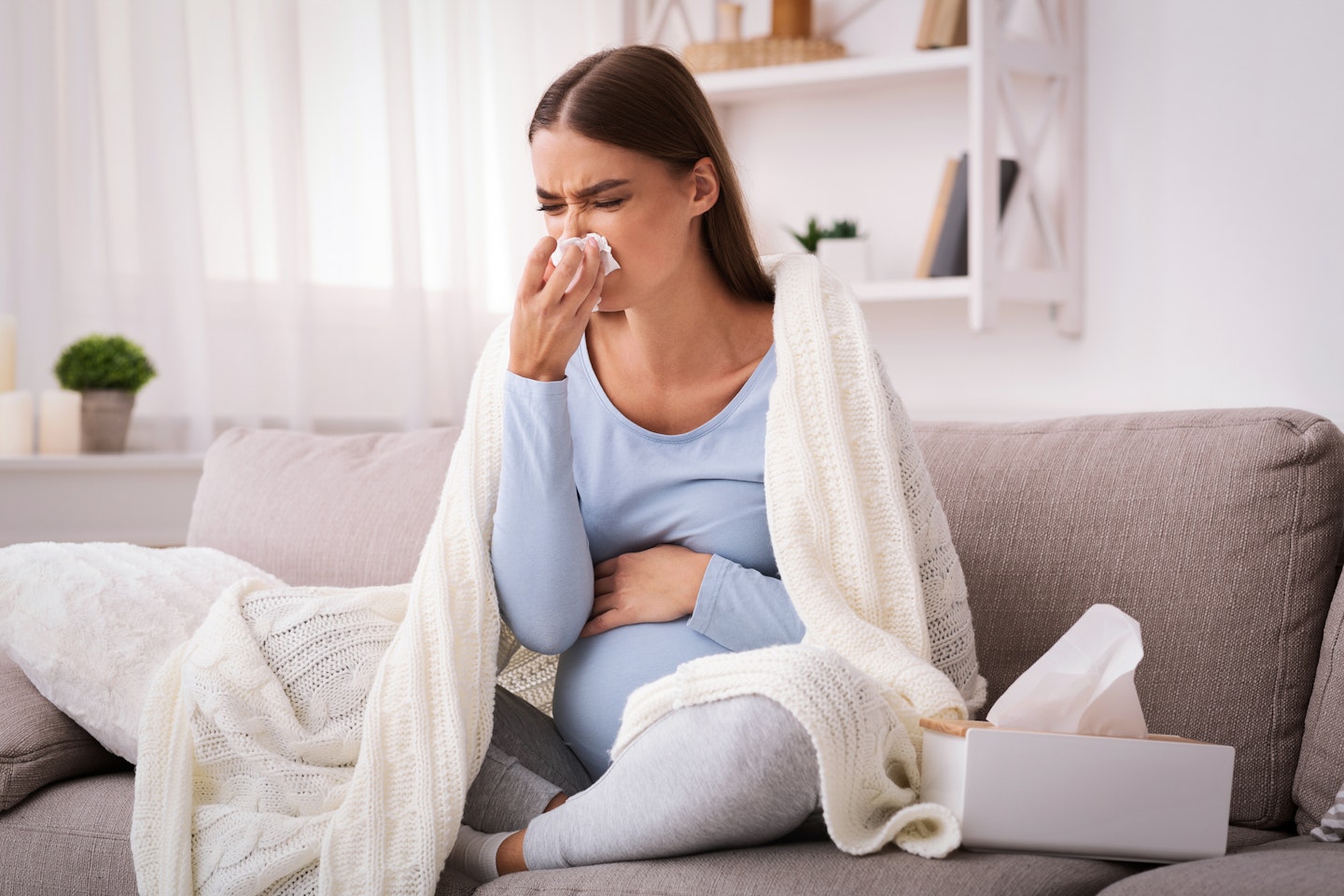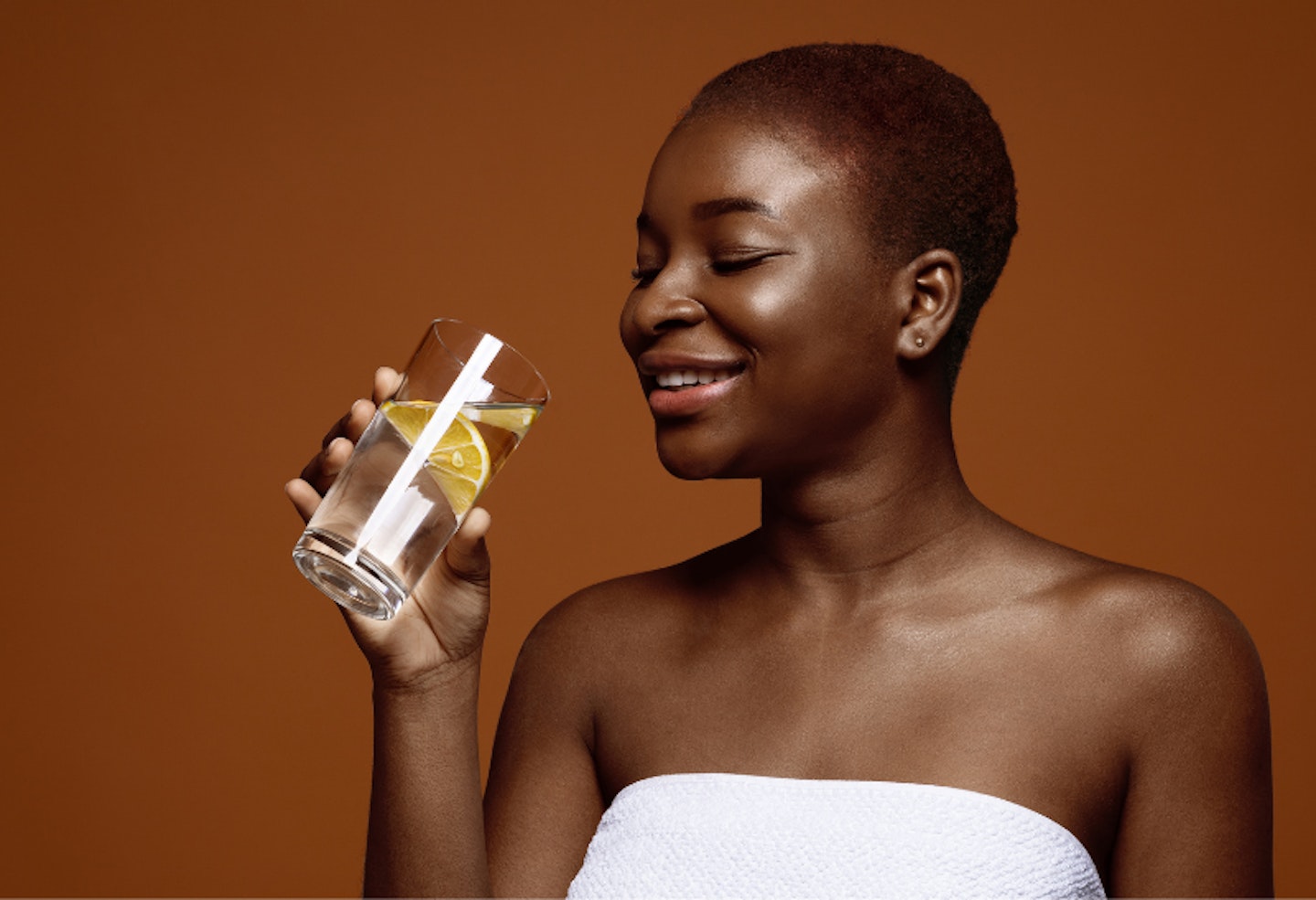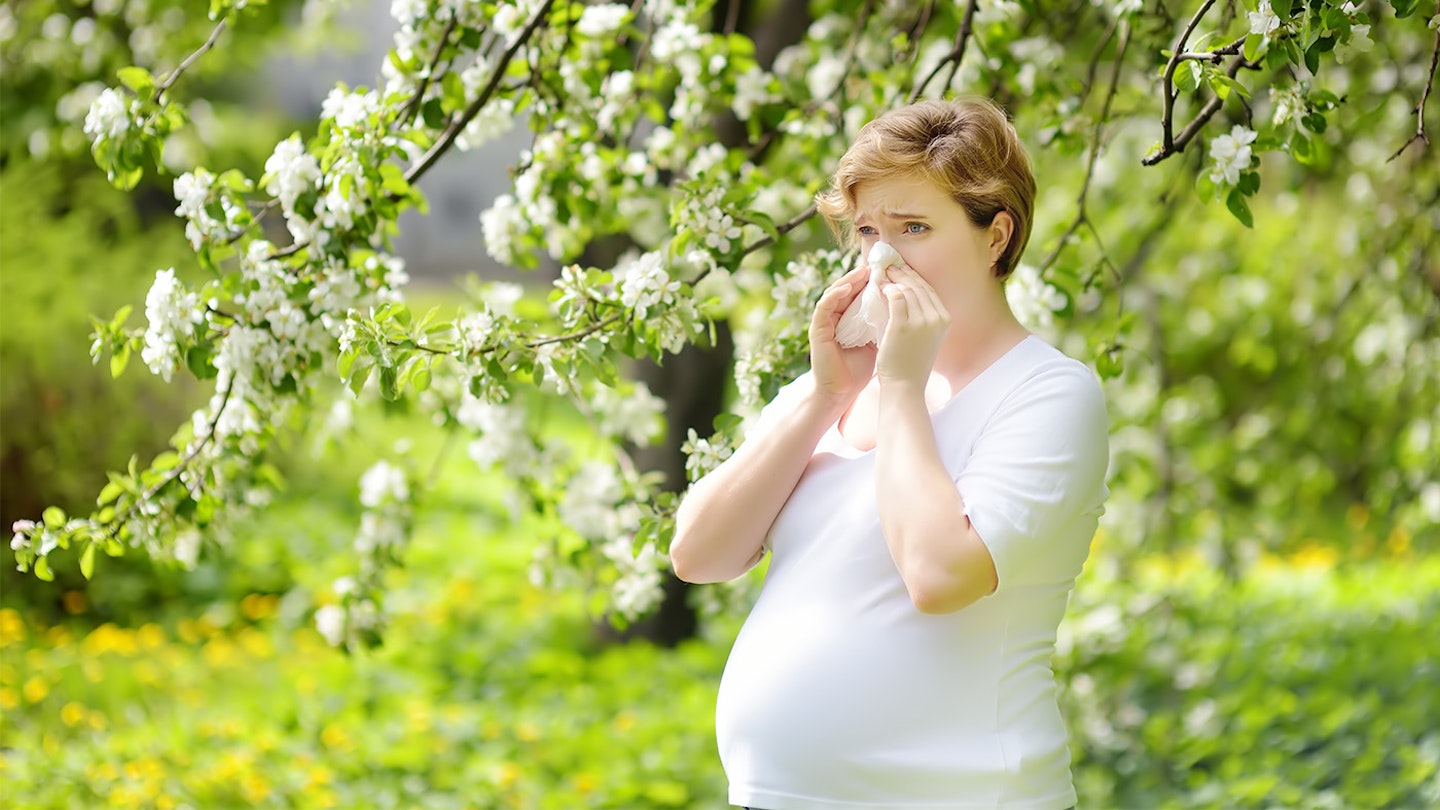If you suffer from hayfever it can be aggravating at the best of times, but hayfever in pregnancy is tricky when you’re not sure which of your go-to medicines you can use. There are ways to manage hayfever in pregnancy and give yourself relief without harming your baby though.
Here's everything you need to know about hayfever relief in pregnancy – what medications are safe to take and how you can cope with your hayfever during your pregnancy, while making sure your baby is kept safe.
What is hay fever?
Hayfever is very common in the UK and affects around one in five adults.
"It’s a “rhinitis” – a condition where something makes the inside of your nose inflamed," says Dr Ellie Cannon, author of Keep Calm: The New Mum's Manual. "It can be caused by various different allergens, such as pollen, animal fur and dust."
In addition to causing sneezing, itching and a runny nose, hayfever may also have an effect on your eyes, sinuses and throat, making them itchy and sometimes causing a cough. You may also experience earache, a headache or feeling tired and drowsy.
Are seasonal allergies worse when pregnant?
During pregnancy, hormone changes can increase the chances of you feeling bunged up and full of cold, which naturally can get worse during hay fever season.
"Pregnancy has an effect on your immune system and hay fever is a condition caused by the immune system," Dr Ellie explains. "But it’s hard to tell if it’s worse or just feels worse during pregnancy as you can’t take your usual medication."
Can you take antihistamines when pregnant?
It is not advisable to take antihistamines while pregnant, unless you have checked with your doctor first. However, Dr Ellie says there are some alternatives you can try instead.
"Steroid nasal sprays such as Beconase or flixonase can be used," she says, as only a tiny amount goes into your blood stream, which passes on to your baby.
"It’s best to avoid antihistamines unless they have been prescribed by your GP," Dr Ellie advises. "You can also use saline nasal sprays, such as sterimar, to wash out the pollen and deterrants like haymax which keep pollen away from the nose." Both of these can be bought over the counter and won’t harm your baby.
What antihistamines are safe during pregnancy?
According to NIH: "The American College of Obstetricians and Gynecologists (ACOG) and The American College of Allergy, Asthma and Immunology (ACAAI) have recommended chlorpheniramine and tripelennamine as the antihistamines of choice for pregnant women. They also recommend cetirizine and loratadine after the first trimester in patients who cannot tolerate or do not respond to maximal doses of chlorpheniramine or tripelennamine."
However, as Dr. Ellie advises, you should really avoid antihistamines unless they have been prescribed by your GP.
Natural ways to avoid hayfever while pregnant

Want to steer clear of medication altogether? There are some changes you can make yourself to help shield you from hay fever in pregnancy. Dr. Edel Duffy, Head of Medical for FUSION™ Allergy Nasal Spray, shares her top tips below:
1. Get a good night's sleep
This can feel hard enough when you're pregnant, so it’s a good idea to have a bedtime routine that helps to reduce the likelihood that allergens, like pollen, will affect you getting a good night’s rest.
• Leaving the clothes that you’ve worn during the day outside of the bedroom is a good way to help minimise the amount of pollen you bring into your room before bed.
• Washing or simply wetting your hair before bed will help to stop pollen and other allergens rubbing off onto your pillow. Pollen can even attach itself to your eyelashes, so bathing your eyes will reduce the chances of any flare ups during the night and help you to have a restful sleep.
2. Try and keep your home a pollen-free zone
Avoid bringing pollen into your house by taking your shoes off at the door. If you have a cat or dog, limit the amount of pollen they bring into the house by combing their fur before they come in – or better still, get someone else to do it for you if you can!
3. Plan ahead
If you're planning to head outside for the day it’s worth checking daily pollen counts so you’re prepared, as the amount of pollen in the air tends to spike during the morning. Plan your day so that you spend time outdoors in the afternoon or early evening instead when pollen counts are usually at their lowest.
Also, take hayfever products out with you to help to manage symptoms whilst you’re out and about. Fusion Allergy Nasal Spray (Boots £9.99) is safe to use during pregnancy, and contains the natural ingredient Ectoin, which forms a moisturising protective “shield” for the eyes, nose, mouth and throat, blocking out pollen and relieving symptoms such as sneezing and nasal congestion.
Always check with your GP before taking any medication when you’re pregnant, or speak with your pharmacist about natural hay fever products that are suitable for pregnant women.

Natural remedies for hayfever while pregnant
It is horrible when you are blocked up, have an itchy, runny nose, or stinging eyes and cannot take your usual medication for hayfever. As well as using a safe nasal spray, getting lots of rest and trying to keep pollen out of your home by keeping the windows shut, you can also try the following:
Reflexology
Reflexology during pregnancy is safe, although, as with anything, you can check with your midwife before trying something new. It may take a few sessions to see any effect on your symptoms, and it has not been scientifically proven, but it will be relaxing and it can help to ease those annoying hayfever symptoms because it is thought to keep the sinuses clear and balance mucus production. It also helps to keep the lymphatic system working efficiently which can boost the immune system.
Acupuncture
As with reflexology, there is scientific proof that acupuncture treats hayfever, but it is thought to help and the NHS advises that it is safe during pregnancy, although always let your therapist know you are pregnant. The British Acupuncture Council says acupuncture can strengthen your body's defences and reduce inflammation.
Nasal balm
The NHS advises you can use a small smear of vaseline under your nose to try and trap pollen and prevent you from inhaling it.
Nettle tea
Follow the guidance from the NHS when drinking herbal tea when pregnant, which is no more than 1 - 2 cups per day. However, nettle tea is safe to drink and it is thought to alleviate symptoms by reducing the amount of histamine your body produces.
Onions, garlic and chilli
Adding these ingredients into your meals might help improve your symptoms. Both chilli and onion are natural decongestants, with onions containing quercetin, which is a natural antihistamine because it stabilises the cells producing histamine, plus garlic also helps to boost the immune system.
Lemon water
Lemons contain bioflavonoids, which can be used to treat allergies, again by helping to reduce the amount of histamine your body produces. Plus, sipping on warm lemon water will also be soothing and help you to relax, as well as keeping you hydrated which also helps with hayfever.
About the expert
Dr Ellie Cannon is a dynamic, straight talking GP, mum of two, and author of Keep Calm: The New Mum’s Manual. She is well known for her health pages in the Mail on Sunday and her vibrant presence across TV, radio and social media. She has also authored books on mental health and parenting and is celebrated as a myth-buster and voice of sense within health and science.
Having graduated from the University of Gloucestershire with a first in Journalism, Mother&Baby Digital Writer Bryony Firth-Bernard went on to work as a reporter at Heart Radio West before becoming the lifestyle intern across Good Housekeeping, Prima and Red magazine.
